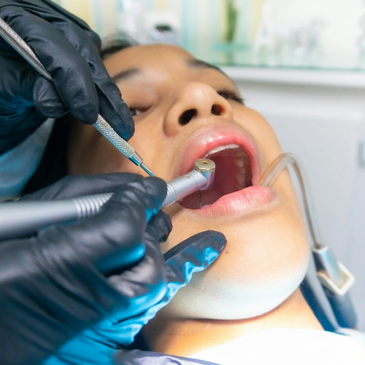A Comprehensive Guide to Pediatric Dental Care and Its Function in Preventing Usual Dental Issues
Understanding pediatric oral care is vital for establishing a structure of lifelong oral health in youngsters. Early oral sees, appropriate oral health techniques, and dietary awareness are critical parts that can substantially reduce the threat of typical oral problems such as cavities and malocclusion.
Importance of Very Early Dental Visits
Acknowledging the value of early oral sees can establish the foundation for a child's lifelong oral wellness. Establishing a connection with a pediatric dentist as very early as the eruption of the first tooth, typically around six months of age, is crucial. These preliminary gos to not just familiarize children with the oral environment however also allow for early discovery of prospective problems, such as misalignment or dental caries.
Very early dental exams equip caregivers with useful expertise relating to correct oral treatment, nutritional recommendations, and the avoidance of dental illness. Pediatric dental experts are knowledgeable in resolving the special needs of children, guaranteeing that they get age-appropriate education on dental hygiene. Moreover, these sees supply an opportunity to go over behaviors such as thumb-sucking and pacifier use, which can impact dental growth.
Essential Oral Hygiene Practices
Establishing a strong foundation for a kid's oral health and wellness goes past regular dental gos to; it likewise includes instilling effective oral hygiene practices from a very early age. Caretakers and parents play an essential duty in training kids correct strategies to preserve their oral health and wellness.

Flossing must begin when two teeth touch, as this protects against plaque accumulation in hard-to-reach areas. Moms and dads must aid their youngsters with cleaning and flossing up until they are about seven or 8 years old to guarantee thoroughness.
Furthermore, establishing regular dental exams every six months permits professional monitoring of oral wellness. Showing children the value of oral hygiene and making it a fun, engaging task can cultivate long-lasting healthy and balanced behaviors that are essential in preventing typical oral issues.

Function of Nourishment in Dental Wellness
Nutrition plays an essential role in keeping ideal dental health and wellness, as the foods youngsters take in can considerably impact the growth and strength of their teeth. A well-balanced diet regimen rich in essential minerals and vitamins is essential for developing strong enamel and supporting general dental wellness (kid dentist near me). Key nutrients, such as calcium, phosphorus, and vitamin D, are crucial for the formation of healthy teeth and bones. Foods like dairy products, leafed greens, and fortified cereals can enhance calcium and phosphorus levels, while direct exposure to sunlight or nutritional resources of vitamin D can improve calcium absorption.
On the other hand, a diet plan high in acids and sugars can bring about destructive effects on oral health and wellness. Sugary snacks and beverages can cultivate the development of damaging bacteria in the mouth, bring about increased acidity and a greater threat of tooth degeneration. It is crucial for caretakers to urge much healthier treat alternatives, such as fruits, veggies, and whole grains, which not only offer needed nutrients yet also advertise saliva production, more safeguarding teeth.
Common Dental Problems in Children
Dental wellness concerns are an usual concern for lots of moms and dads, as kids can experience a variety of problems that might impact their oral health. One common problem is tooth decays, or tooth cavities, which occur from the demineralization of tooth enamel because of acid-producing germs. This condition is commonly intensified by poor nutritional behaviors, such as constant consumption of sweet snacks and drinks.
An additional typical problem is malocclusion, where teeth are misaligned, bring about problems in attacking, eating, and speaking. This can arise from genetic variables or practices such as thumb sucking and extended pacifier usage. Additionally, gingivitis, an early kind of periodontal illness, can occur in kids, commonly due to inadequate oral hygiene techniques. It is characterized by red, puffy periodontals that may hemorrhage during brushing.
Tooth injuries, consisting of avulsions or fractures, are also frequent amongst energetic youngsters. Normal oral exams play a vital function in detecting and addressing these common dental problems properly.
Structure Lifelong Dental Behaviors
Instilling excellent dental hygiene methods early in life sets the foundation for a lifetime of healthy and balanced teeth and gums. Establishing a constant routine for cleaning and flossing is essential; youngsters must comb their teeth two times a day with fluoride toothpaste and begin flossing as quickly as 2 surrounding teeth touch. Moms pediatric dentist and dads play a critical function in modeling these habits, as youngsters frequently imitate grown-up methods.
Enlightening children regarding the significance of oral care can even more enhance these habits. Usage engaging techniques, such as tales or interactive games, to assist them understand why routine oral visits and proper hygiene are essential. Furthermore, presenting a well balanced diet regimen reduced in sugar can dramatically reduce the danger of tooth cavities and advertise dental health.
Routine dental examinations, typically recommended every 6 months, offer a possibility for professional guidance and early detection of prospective problems. These brows through can also help youngsters build a positive organization with oral treatment. By fostering these practices and mindsets from a young age, parents can equip their kids to take obligation for their dental wellness, inevitably bring about a life time of confident smiles and decreased dental troubles.
Verdict

Early dental gos to, appropriate oral hygiene techniques, and nutritional awareness are essential elements that can significantly minimize the danger of usual dental troubles such as tooth cavities and malocclusion.Very early dental exams equip caretakers with important expertise relating to proper dental care, dietary referrals, and the prevention of oral diseases. Normal oral examinations play a crucial function in identifying and attending to these usual dental issues successfully.
Early oral check outs, along with the execution of effective oral health techniques and proper nourishment, significantly contribute to the avoidance of usual oral troubles such as tooth cavities and gingivitis. By instilling favorable oral practices from a very early age, children are a lot more likely to experience healthy teeth and gums throughout their lives, eventually promoting a culture of dental health that can be sustained into their adult years.